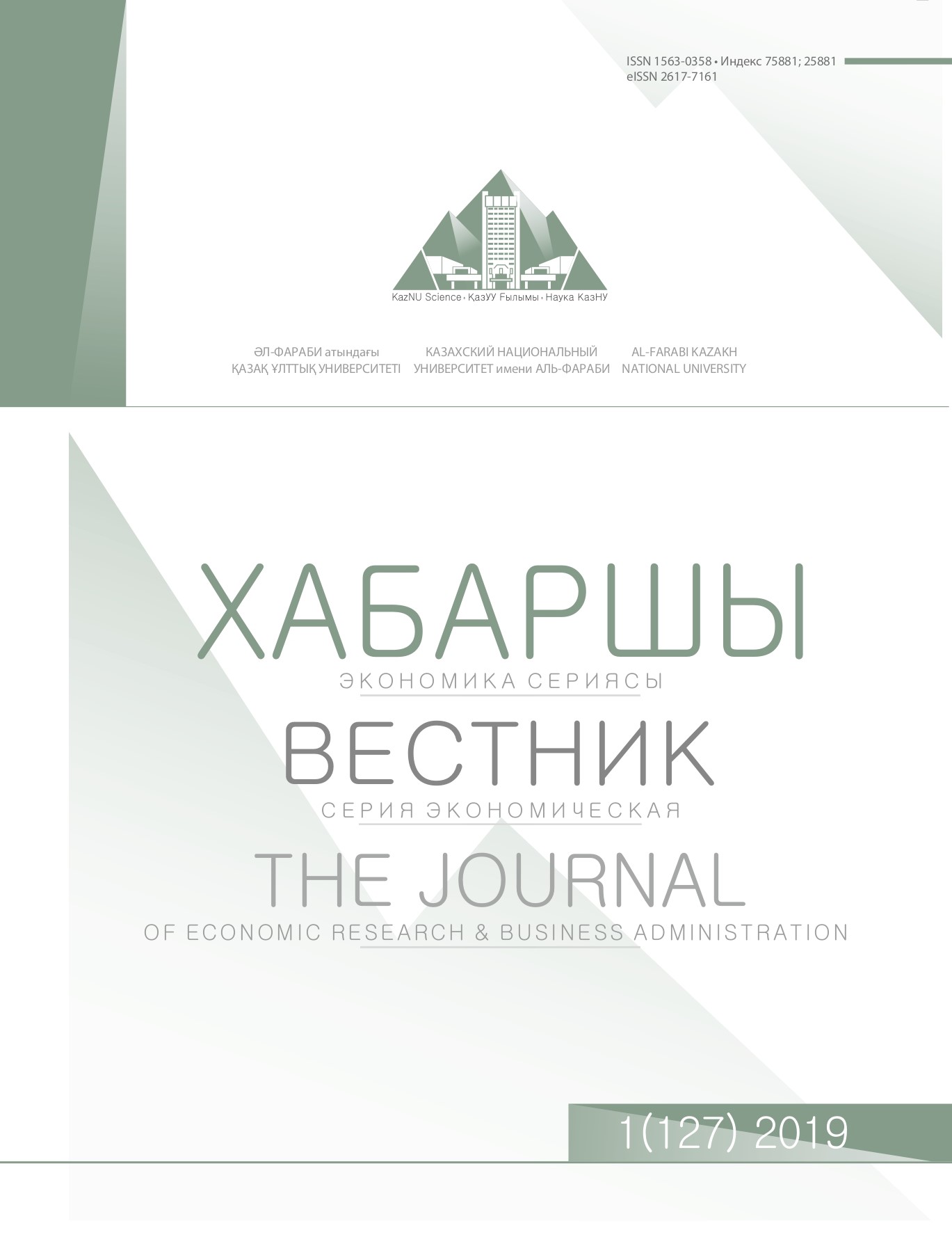Tools of the stock market in the financial support of the economy of Kazakhstan
DOI:
https://doi.org/10.26577/be.2019.v127.i1.14Abstract
The modern paradigm of the economic policy of the Republic of Kazakhstan implies a departure from the raw material orientation, the development of industries and industries with high added value, the modernization of the production base of business entities, and the strengthening of their competitiveness. The solution of this complex task is possible only on the basis of improving access to financial resources. Against the background of a shortage of sources of financing in the real sector, financial institutions are experiencing an excess of them. Excessive liquidity of the financial sector is associated with a lack of investment objects against the background of increasing external risks.
The stock market is designed to ensure free flow of capital between its participants through the use of financial instruments – securities. The instruments of the stock market in world practice are characterized by a wide variety in terms of profitability, liquidity and risks.
Meanwhile, the current state of the securities market of the republic does not correspond to the level
of economic development. Due to the lack of financial instruments, insufficient protection of the rights of
investors, a high level of transaction costs, the stock market does not fully fulfill its purpose. The authors
explore the current state of the stock market of the republic, the influence of macroeconomic trends on
it. Based on the analysis, the complex tasks of activating the mechanism of the stock market were formulated,
and specific recommendations were given to revitalize it and enhance its role in the financial
support of business entities in Kazakhstan.













